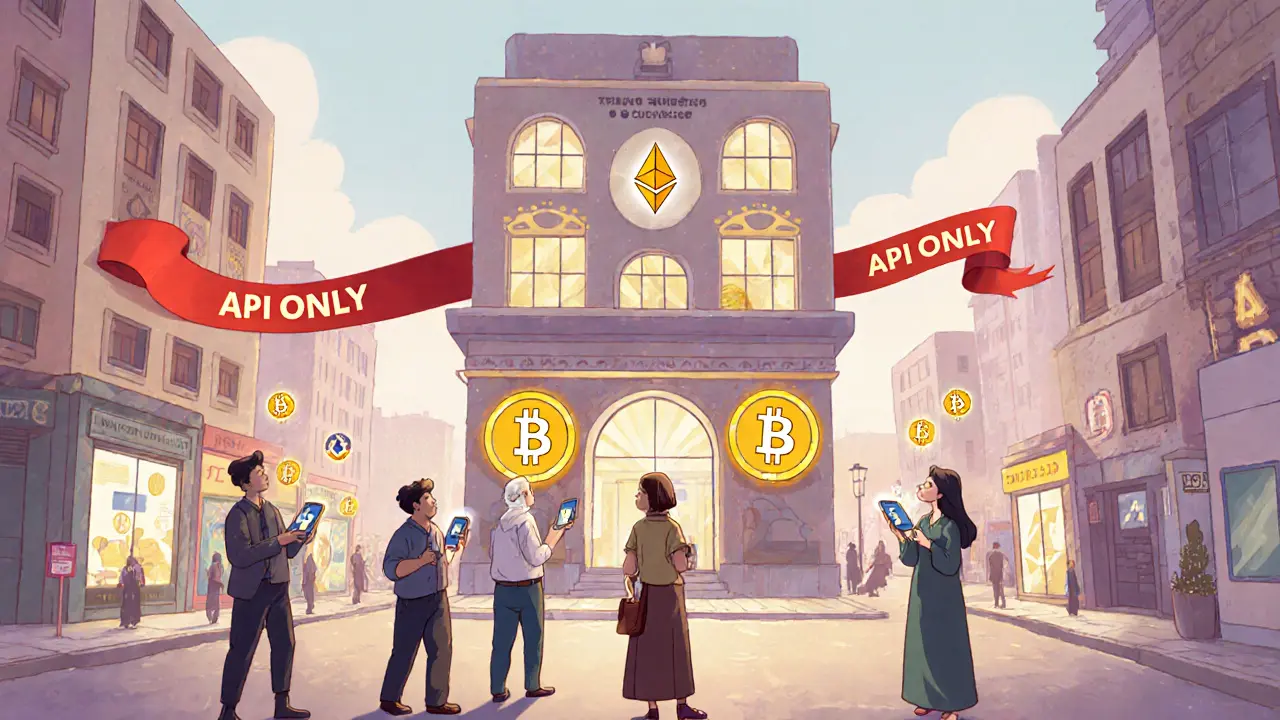Crypto Exchanges Banned in Iran
When a country bans crypto exchanges, online platforms where people buy, sell, or trade digital currencies like Bitcoin and Ethereum. Also known as cryptocurrency trading platforms, they are often blocked because governments fear losing control over money flows and financial oversight. Iran is one of those countries. Even though Iranians use crypto to protect savings from inflation and bypass sanctions, the government has cracked down hard on local access to major exchanges like Binance, Kraken, and Coinbase. This isn’t just about technology—it’s about power, money, and survival.
Why ban something so widely used? The Iranian central bank doesn’t recognize Bitcoin or any other crypto as legal tender. They worry people will move money out of the country, avoid currency controls, or fund activities they can’t monitor. In 2021, Iran even passed rules requiring miners to sell their coins to the central bank at fixed prices. That’s not regulation—it’s confiscation disguised as policy. Meanwhile, users turn to peer-to-peer (P2P) networks, decentralized exchanges (DEXs), and offshore platforms that don’t require ID. Tools like Decentralized Finance (DeFi), a system of financial services built on blockchains without banks or middlemen. Also known as open finance, it allows Iranians to lend, borrow, and earn interest without needing a local exchange. Platforms like Uniswap or SushiSwap don’t have offices in Iran, so they’re harder to shut down. But even then, users face risks: scams, frozen wallets, and internet blackouts.
Some local platforms tried to fill the gap, like Naijacrypto in Nigeria or similar services in Iran, but many got flagged as unlicensed or unsafe. The truth? There’s no legal, safe, and easy way to trade crypto inside Iran under current rules. The government wants control. Users want freedom. And in between, people are finding workarounds—using VPNs, Telegram groups, and cash trades. It’s messy. It’s risky. But it’s real.
If you’re trying to understand how Iranians access crypto despite the ban, you’ll find real stories in the posts below. Some cover how people claimed tokens on banned platforms before the crackdown. Others expose fake exchanges pretending to serve Iranian users. You’ll see what happened with MEXC, CoinMarketCap campaigns, and DeFi projects that still reached Iranian wallets—even when the government said they couldn’t. This isn’t theory. It’s what people are doing right now. And if you’re looking for ways to stay safe, spot scams, or understand the legal gray zones, the guides here give you the facts—no fluff, no hype, just what works.
Crypto Exchanges Banned in Iran - 2025 Restrictions Guide
Explore which crypto exchanges are blocked in Iran, why they’re banned, and practical ways to stay active in the market despite sanctions and local restrictions.
